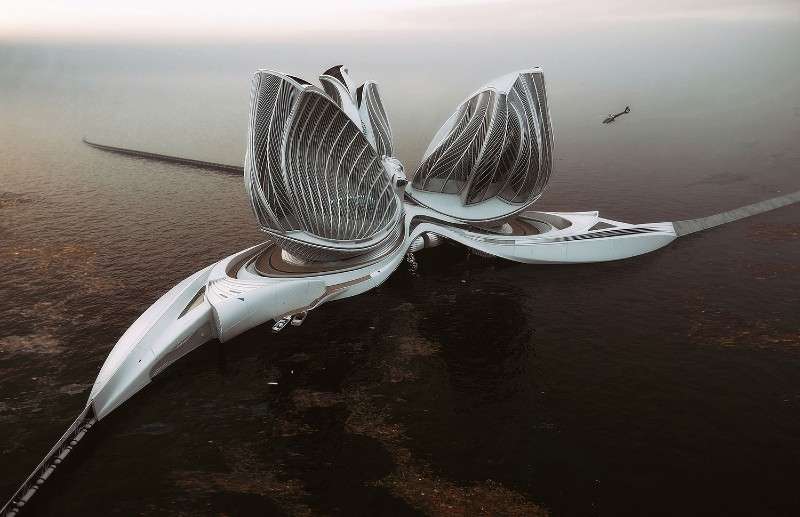World's First 3D-Printed Eye Offers Digital Prosthetics
A man from London has received the world's first 3D-printed digital prosthetic eye, and you'd never be able to see the difference.

A large, self-sustaining, floating research lab as big as an island could be the next big thing in ocean cleanup.
The 8th Continent, as it's called, has won the 2020 Grand Prix prize for architecture and innovation of the sea, and is designed to allow the operators to live, work, eat, sleep, and study there full-time.
Looking like something out of Thunderball, the 8th Continent is a water lily-like marine station that's chained to the bottom of the sea, but designed to float in the ocean currents.
It's modeled to be a "living organism that is fully self-sustainable," the chief designer said, and to host a number of activities along with its chief mission of cleaning up the Great Pacific Garbage Patch.
A 900,000-square-mile area characterized by a high-density of plastic waste (think trillions of individual pieces), the Great Pacific Garbage Patch is currently being cleaned by large nets that use the currents to help them collect.
"I was looking into marine species, animals as well as plants. And I was studying how they really interact with water environments, how they can harvest energy and how they work with nutrition, for example," said Senior Designer Lenka Petráková at Zaha Hadid Architects in London, who won the award.
The three long legs, or maybe they should be called tentacles or fins, collect passing plastic waste as well as tidal energy to convert into electricity. Sitting on top are three research and education centers underneath three tall, spiraling greenhouses containing hydroponic gardens and a water desalination plant.

The spine of the facility will house the living and working quarters, where collected waste is sorted and recycled, while the underwater draft spire will contain a viewing platform.
Stirworld reports that there will be biodegrading infrastructure onboard to break down the plastic.
At the moment it's a big dream, as it's so early in the conceptual stage that materials haven't even been hypothesized yet, but that didn't stop Petráková in an interview saying that she believes Elon Musk, with his penchant for super-scientific machines and sleepless enthusiasm (and billions), would be the ideal patron to bring the project to life.
Even if it never cleaned up a single water bottle, the design is still fascinating and gorgeous to see; a better place to study the ocean, one could never find.
(WATCH the EuroNews video for this story below.)
SHARE This Stunning Concept With Design-Minded Friends…
Be the first to comment